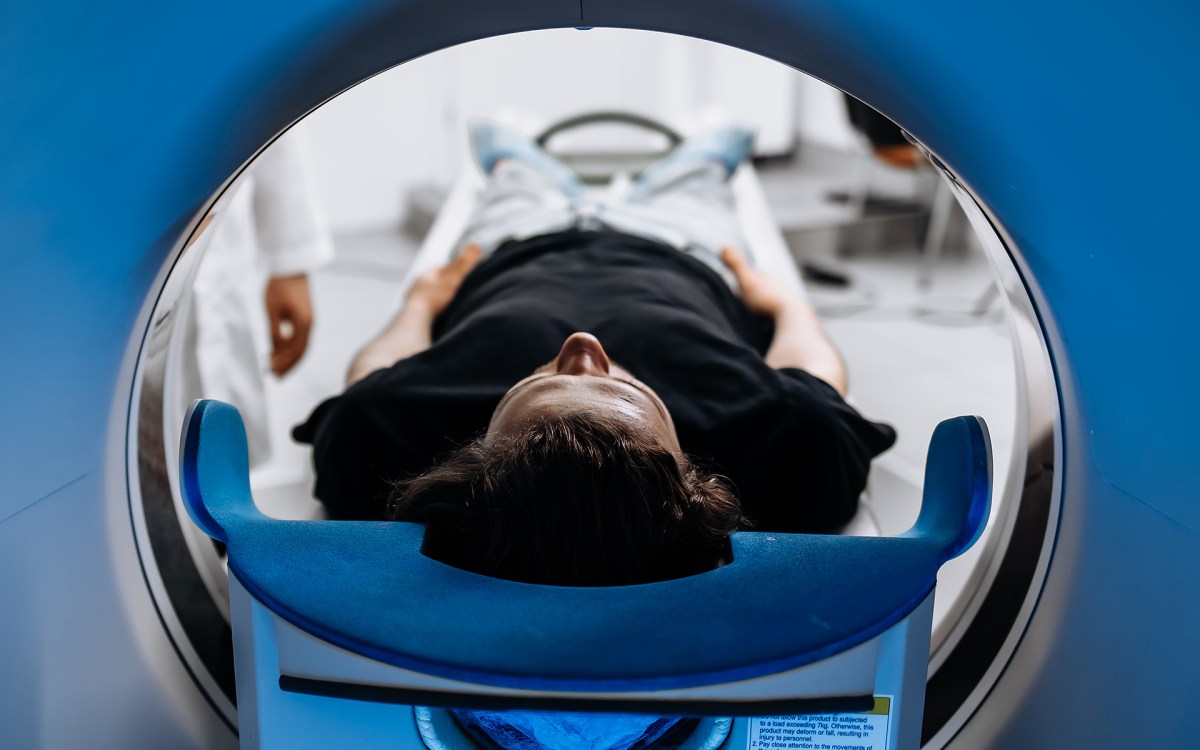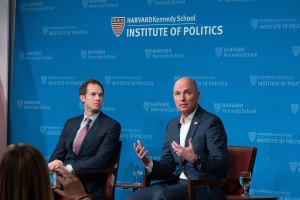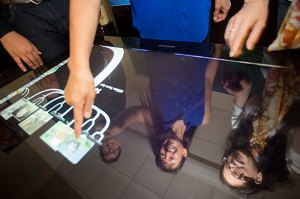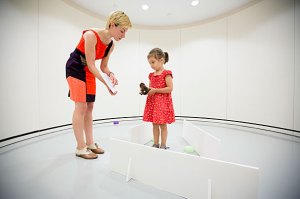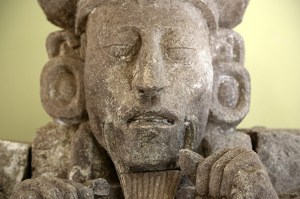Tag: Research
-
Campus & Community
A 21st-century campus
Supporting the development of a robust campus, one that enhances Harvard’s mission of innovative teaching and learning, while simultaneously fostering connections across the University and the broader community will be an important goal of The Harvard Campaign.

-
Nation & World
Cooperating in educating
The Harvard Campaign will help support growing advancements in interdisciplinary collaboration and integrated knowledge across the University.
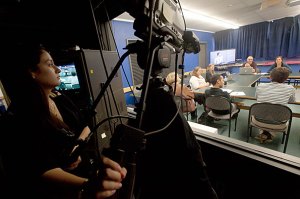
-
Health
When bacteria fight back
After the U.S. Centers for Disease Control and Prevention issued a report on the threat from drug-resistant bacteria, David Hooper, a physician at Massachusetts General Hospital and an authority on the subject, discussed the issues during a question-and-answer session.
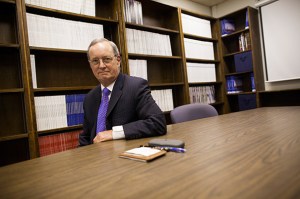
-
Science & Tech
Advancing science and technology
The National Science Foundation is awarding grants to create three new science and technology centers this year, with two of them based in Cambridge. The two multi-institutional grants total $45 million over five years.

-
Health
40% prevention rate for colorectal cancers
A Harvard study has found that 40 percent of all colorectal cancers might be prevented if people underwent regular colonoscopy screenings. The new research also supports existing guidelines that recommend that people with an average risk of colorectal cancer should have a colonoscopy every 10 years.
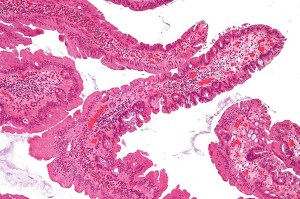
-
Health
Recalling a lab-led rescue
Professor Howard Green stumbled across a skin transplant technique that involved growing keratinocytes into full skin layers, making him a pioneer in regenerative medicine.

-
Arts & Culture
Harvard’s Indian College poet
With the discovery of a poem missing for 300 years, two Harvard graduate students have filled in some missing blanks on Benjamin Larnell, the last student of the colonial era associated with Harvard’s Indian College.
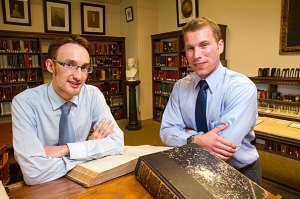
-
Health
The good life, longer
By synthesizing the data collected in multiple government-sponsored health surveys conducted in recent decades, researchers from the National Bureau of Economic Research, Harvard University, and the University of Massachusetts were able to measure how the quality-adjusted life expectancy of Americans has changed over time.

-
Health
Cancer vaccine begins Phase I clinical trials
A cross-disciplinary team of Harvard scientists, engineers, and clinicians announced Sept. 6 that they have begun a Phase I clinical trial of an implantable vaccine to treat melanoma, the most lethal form of skin cancer.

-
Health
Lasering in on tumors
In the battle against brain cancer, doctors now have a new weapon: an imaging technology that will make brain surgery dramatically more accurate by allowing surgeons to distinguish between brain tissue and tumors, and at a microscopic level.
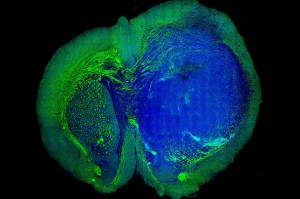
-
Science & Tech
Pinched minds
The accumulation of money woes and day-to-day anxiety leaves many low-income individuals not only struggling financially, but cognitively, says Harvard economist Sendhil Mullainathan. In a study featured in Science, he reports that the “cognitive deficit” caused by poverty translates into as many as 10 IQ points.
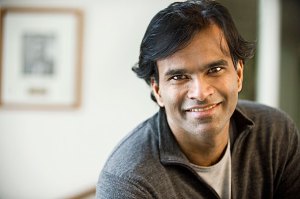
-
Health
Skip the juice, go for whole fruit
Harvard researchers have found that people who ate at least two servings each week of certain whole fruits — particularly blueberries, grapes, and apples — reduced their risk for type 2 diabetes by as much as 23 percent in comparison to those who ate less than one serving per month.
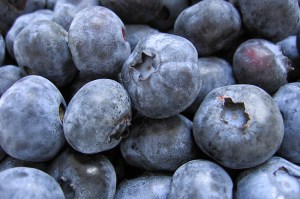
-
Science & Tech
Transparent artificial muscle plays music
Using a gel-based audio speaker, Harvard researchers have shown that electrical charges carried by ions, rather than electrons, can be put to meaningful use in fast-moving, high-voltage devices.
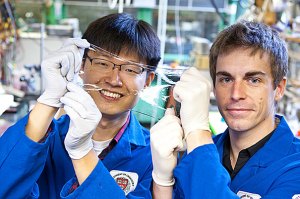
-
Science & Tech
Wildfires projected to worsen with climate change
A Harvard model predicts that by 2050, wildfire seasons will be three weeks longer, up to twice as smoky, and will burn a wider area in the western United States.

-
Science & Tech
Atop the Amazon rainforest
Harvard air chemistry expert Scot Martin is working with the Department of Energy, as well as several international partners, to track how pollution above the pristine Amazon rainforest is changing the climate.
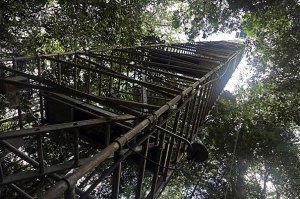
-
Campus & Community
Young scientists awarded $719,701 in grants
This year, Harvard researchers are receiving $719,701 in funding from the Brain & Behavior Research Foundation, formerly known as the National Alliance for Research on Schizophrenia and Depression, or NARSAD.
-
Science & Tech
Seeds of violence in climate change
Nathan Black, the French Environmental Fellow, is studying how nations fall into civil war during the type of agricultural disruption possible with a changing climate — and what some nations might do to prevent it.
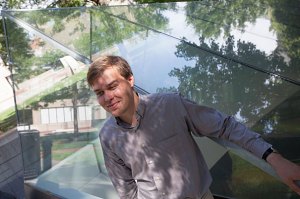
-
Nation & World
Deepening ties to Latin America
Harvard’s role in an increasingly connected world includes deep ties to Latin America, where faculty and students are engaged in a range of research projects and initiatives, from climate research in Brazil to disaster relief work in Chile to protecting Maya art and architecture in Honduras.
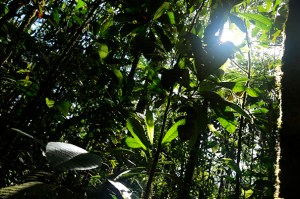
-
Health
Organs-on-chips evaluate therapies for lethal radiation exposure
A team at the Wyss Institute at Harvard has received a $5.6 million grant from the FDA to use its organs-on-chips technology to test human physiological responses to radiation and evaluate drugs designed to counter those effects.
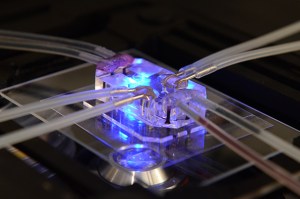
-
Science & Tech
Seeing depth through a single lens
Researchers at the Harvard School of Engineering and Applied Sciences have developed a way for photographers and microscopists to create a 3-D image through a single lens, without moving the camera.
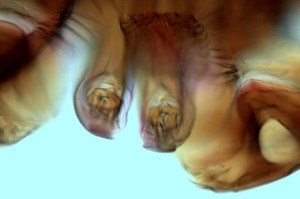
-
Science & Tech
New coating creates ‘superglass’
A new transparent, bioinspired coating makes ordinary glass tough, self-cleaning, and incredibly slippery. It could be used to create durable, scratch-resistant lenses for eyeglasses, self-cleaning windows, improved solar panels, and new medical diagnostic devices.
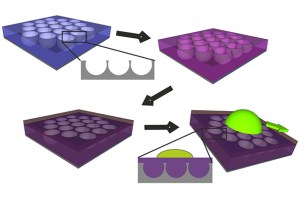
-
Campus & Community
Postdoc wins Runyon Fellowship
Michael A. Cianfrocco, a postdoctoral fellow in molecular and cellular biology, has been named a fellow by the Damon Runyon Cancer Research Foundation.
-
Science & Tech
Right down the middle, explained
The ability to throw an object with great speed and accuracy is a uniquely human adaptation, one that Harvard researchers say played a key role in our evolution.

-
Science & Tech
Map to renewable energy?
Researchers hoping to make the next breakthrough in renewable energy now have plenty of new avenues to explore — Harvard researchers this week released a database of more than 2 million molecules that might be useful in the construction of organic solar cells for the production of renewable energy.

-
Health
Following the swarm
Australian scientist Stephen Simpson’s locust research has led to insights on human nutrition.
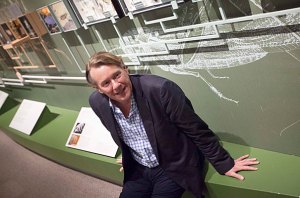
-
Health
Developing cancer drugs
Harvard Stem Cell Institute researchers have identified in the most aggressive forms of cancer a gene known to regulate embryonic stem cell self-renewal, beginning a creative search for a drug that can block its activity.
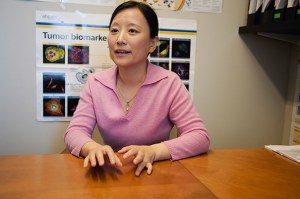
-
Science & Tech
Looking at chimp’s future, seeing man’s
The fate of chimpanzees in Africa is largely in the hands of increasing numbers of poor, rural dwellers crowding the primates’ forest homes. That is why an educational project begun near Uganda’s Kibale National Forest focuses on 14 schools teaching almost 10,000 children, researchers say.

